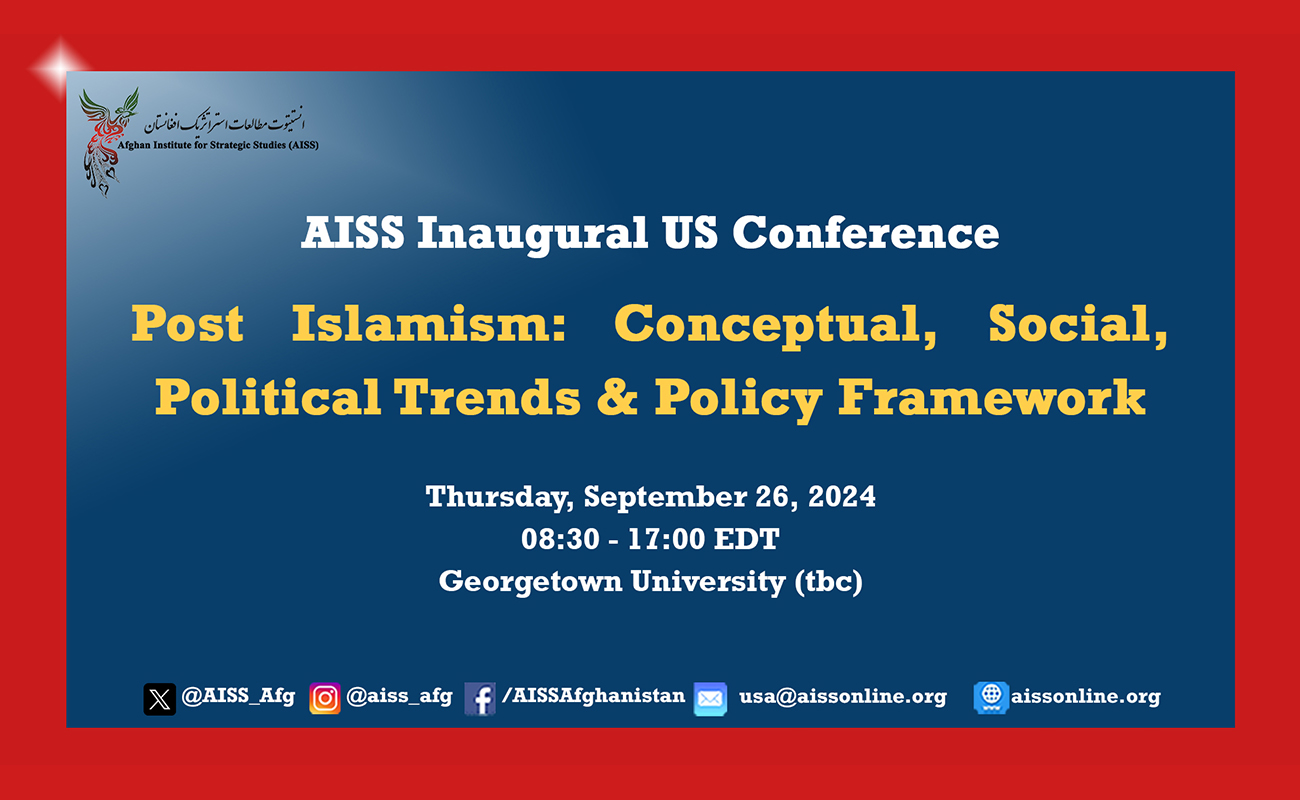Post Islamism: Conceptual, Social, Political Trends & Policy Framework
Post-Islamism -in circulation since 1990s- represents a pivotal shift in Islamic political thought, marking a departure from traditional Islamist ideologies towards more inclusive, democratic, and pluralistic frameworks. As an umbrella concept, it connotes a myriad of meanings and approaches: from "Religious Secularity", "Islamic society with a Secular state", "transitioning from Political Islam to Muslim Democratic", "Civilisational Islam", "Islamicate discourses in place of Islamic doctrines" to more explicitly non/anti-Islamic movements such as " Muslim atheists".
As with its preceding concept, "Islamism", post-Islamism should also be contextualised within broader political, social, economic and global trends involving Muslim-majority societies and Muslim diasporic communities. The return of the Taliban into power, the failure of 'Arab Spring' movements, ongoing violence in the Israel-Palestinian conflict, mobilisation of explicitly Muslim identity politics in Western countries, China's growing involvement in the Islamic World and the rise of Islamist terrorism spearheaded by Daesh show that the hope for a "Post- Global War on Terrorism" era was a wishful thinking and a flawed analysis. To paraphrase Francis Fukuyama's famous thesis, we are witnessing the "return of history".
As the global socio-political landscape continues to evolve, understanding the nuances and implications of Post-Islamism in the context of the "return of history" becomes increasingly imperative. The conference aims to delve deep into this paradigm shift, exploring its conceptual underpinnings, social manifestations, political ramifications, and policy implications as well as its competing forces and trends.
Key Themes:
- Conceptual Frameworks of Post-Islamism: Defining Post-Islamism: Moving beyond traditional Islamist ideologies.
- The evolution of Islamic political thought: From Islamism to Post-Islamism.
- Theocratic/doctrinal development and attempts in re-reading/interpretation of Islam’s foundational texts.
- Social Dynamics and Transformations: Civil society and grassroots movements in the Post-Islamist era.
- Gender dynamics and women's empowerment within Post-Islamist movements.
- Youth engagement and generational shifts in Islamic political discourse.
- Social media and the interaction between ‘real world ‘ and ‘virtual world’.
- Political Manifestations and Challenges: Post-Islamist parties and their strategies for political participation.
- State responses and the dynamics of power: Co-optation, repression, or accommodation?
- Regional and Western variations and case studies: Exploring Post-Islamism in different contexts.
- Policy Implications and Future Directions: Crafting inclusive policies: Incorporating Post-Islamist principles into governance structures.
- International relations and diplomacy in the Post-Islamist era.
- Countering violent extremism: Leveraging Post-Islamist narratives for peacebuilding and reconciliation.
- The nexus of great power competition, ‘return of history’ and ‘Post Islamism paradigm.
Conference Format:
The conference will feature a combination of keynote speeches, panel discussions, paper presentations, and a ‘lunch time conversation’, providing a platform for scholars, policymakers, activists, and practitioners to engage in critical dialogue and knowledge exchange. Special emphasis will be placed on interdisciplinary perspectives, fostering collaboration across academia, civil society, and government institutions.
Expected Outcomes:
Enhanced understanding of the conceptual foundations and socio-political and geopolitical dynamics of Post-Islamism.
Identification of emerging trends and challenges in the Post-Islamist landscape.
Policy recommendations for fostering inclusive governance; promoting social cohesion in diverse societies and addressing the place of values and interest in Great Power competition.
Conclusion:
The conference on "Post-Islamism: Conceptual, Social, Political & Policy Trends" seeks to catalyse scholarly inquiry, policy discourse, and societal dialogue on this significant ideological shift within Islamic political thought. By bringing together diverse perspectives and expertise, the conference aims to contribute to a more nuanced understanding of Post-Islamism and its implications for contemporary societies worldwide.

